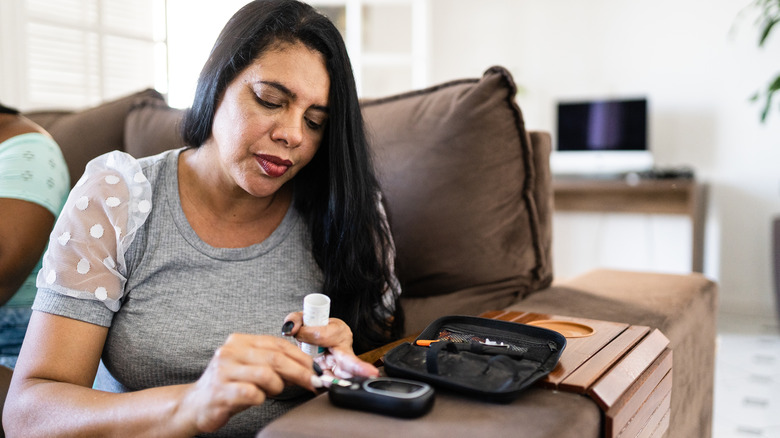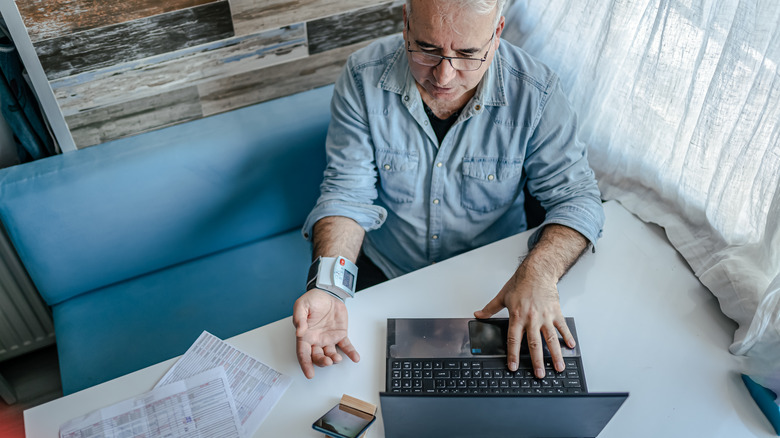Doctor Gives Tips On How To Monitor Your ABCs If You Have Diabetes
More than 10% of the U.S. population lives with diabetes, and more than a third are prediabetic, according to the Centers for Disease Control and Prevention. Managing diabetes is important to prevent complications such as heart or kidney disease, nerve damage, or problems with mental health. A way to keep your diabetes under control is to remember your ABCs. No, not the alphabet, but three important numbers to continually monitor your diabetes. Dr. James (Andy) Anderson has worked in diabetes and cardiometabolic medicine for 50 years. He's now the Chief Medical Officer of Know Labs, Inc. in Seattle, which develops non-invasive ways to measure blood glucose and other diagnostics. In our exclusive interview with Health Digest, Anderson explains the ABCs and gives some tips to help manage our numbers.
The "A" in ABCs stands for A1c test, which is a measure of your average blood sugar over the past three months. Anderson suggests keeping the A1c levels to less than 7%, but some doctors advise 6% in younger adults. "B" is blood pressure, which can pose a risk of complications for people with diabetes. Your doctor can give you an estimate of what blood pressure is appropriate and how to keep it in a healthy range. "C" stands for cholesterol, which should be lower than 200. Triglycerides should be lower than 150.
Keep a record of your ABCs
"The most common issues people have with the ABCs are not remembering what their goals were and what their last values were, and when," Anderson said. "Keep a written record (perhaps tape it to your bathroom mirror, or in your smartphone notes) to help you remember and remind you of your future appointments." He advises talking to your doctor about your ABC numbers, particularly if there's anything you don't understand.
Anderson stresses the importance of having a good relationship with a compassionate doctor who is knowledgeable about diabetes and is transparent in answering any questions about your health needs. Some medical practices have clinical Diabetes Care and Education Specialists who can provide you with education and support. He urges people with diabetes to keep all appointments and take all medications, even if you feel fine.
Because diabetes is linked to poor circulation, Anderson advises checking your feet every day for any bruises or swelling. If your blood sugar is high, so is your saliva, so you should also keep up your dental hygiene. High blood sugar also can damage the retina, so Anderson suggests seeing an eye doctor once a year.
"No one should try this alone — find and participate in support groups to help with your questions, stress, or problems," he said.


